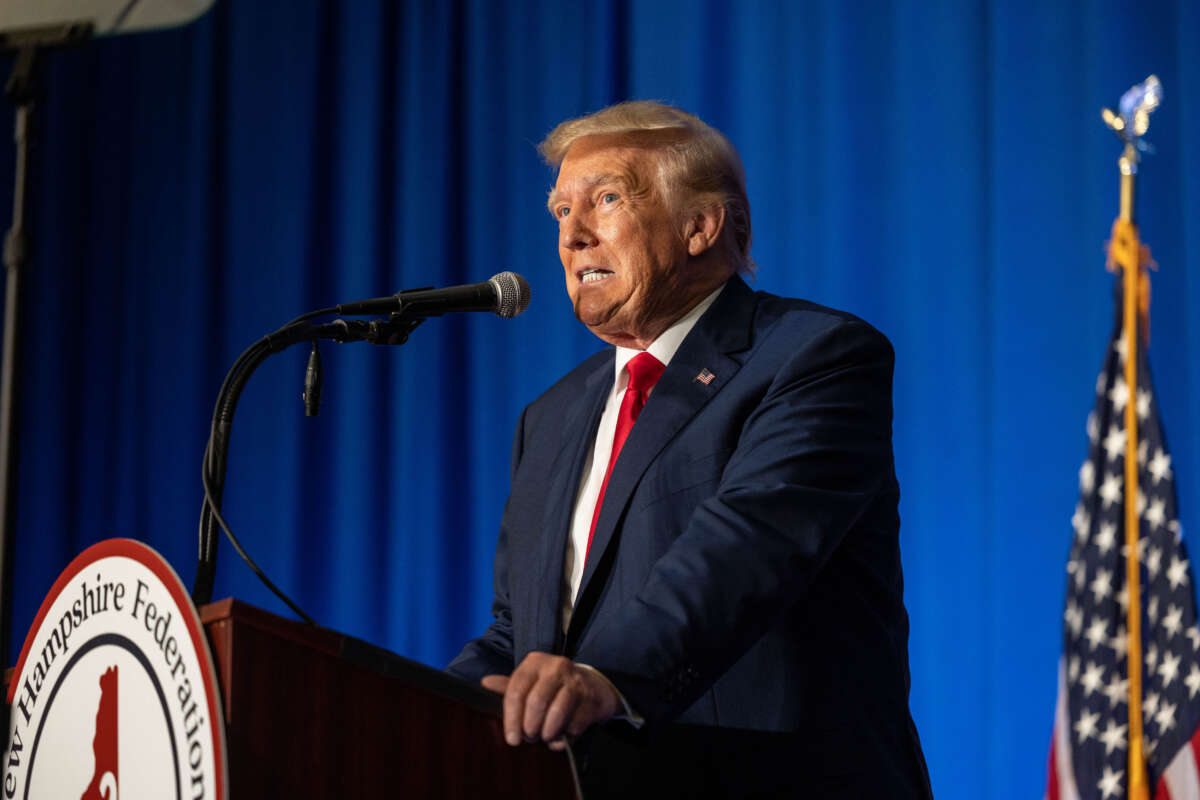Honest, paywall-free news is rare. Please support our boldly independent journalism with a donation of any size.
Former President Donald Trump, who was indicted on 37 charges relating to improperly keeping White House documents at his Mar-a-Lago estate in Palm Beach, Florida, continued pressing his lawyers to get the documents back in his hands, even as they warned him that an indictment was on the horizon.
According to Rolling Stone, which cited a source with direct knowledge of Trump’s demands and two others briefed on them, Trump used possessive language to describe the documents, which were retrieved by the FBI in August of last year. Trump told his lawyers that he wanted “my documents” and “my boxes” back, and asked if they could get the federal government to return them, the publication said.
Regardless of their classification status, the documents in question do not belong to Trump, but to the U.S. government. Many documents were sensitive in nature, and dealt with national security and foreign policy matters.
Trump also told his lawyers it was “illegal” that the documents were retrieved from his estate in the first place. However, presidents are not allowed to take government documents after they exit the White House; documents must instead be kept and preserved by the National Archives and Records Administration (NARA).
Trump has also claimed to his inner circle that he’ll get the documents back in two years, Rolling Stone reported, when he believes he’ll be president again. If he wins the 2024 presidential race, Trump would indeed have access to the documents, but legally, they would still belong to the U.S. government, not him.
Since it became public knowledge that Trump was illegally keeping White House documents in his possession, the former president has repeatedly claimed that he had the right to keep them under the terms of the Presidential Records Act — but that law does not confer such rights to former officials or former presidents, despite his insistence that it does.
“Whatever one might say about his Presidential Records Act argument, there’s no argument that it immunizes him from criminal prosecution under the Espionage Act,” which Trump is facing charges of violating as part of his indictment, former CIA attorney Brian Greer told Rolling Stone.
Trump also claimed that he was the rightful owner of the documents in front of audiences on his 2024 campaign trail.
“Whatever documents a president decides to take with him, he has the absolute right to take them,” Trump said at the Faith & Freedom Coalition conference last week. “He has the absolute right to keep them, or he can give them back [to the government], if he wants. … That’s the law, and it couldn’t be more clear.”
This, again, is untrue.
Although Trump has already been charged with 37 counts of violating federal law relating to his hoarding of government documents after leaving the White House, he could potentially face more charges. The New York Times reported this week that the grand jury that recommended those charges for him is still issuing subpoenas, suggesting that the inquiry is still ongoing.
While it’s unclear what the investigation is looking for or whether it’s looking at Trump or others involved in his actions, the additional round of post-indictment subpoenas could mean that more indictments are on the way. Such charges could also be made in another jurisdiction, like New Jersey, for example, where Trump may have kept documents at his Bedminster property.
Press freedom is under attack
As Trump cracks down on political speech, independent media is increasingly necessary.
Truthout produces reporting you won’t see in the mainstream: journalism from the frontlines of global conflict, interviews with grassroots movement leaders, high-quality legal analysis and more.
Our work is possible thanks to reader support. Help Truthout catalyze change and social justice — make a tax-deductible monthly or one-time donation today.
